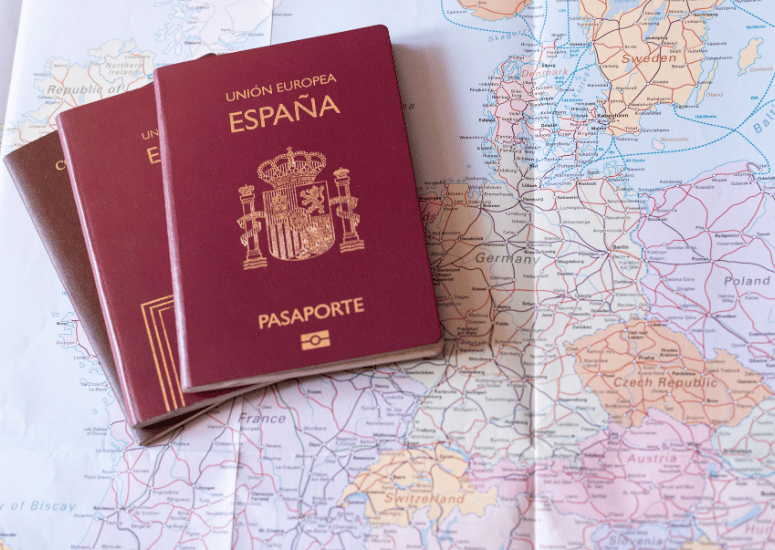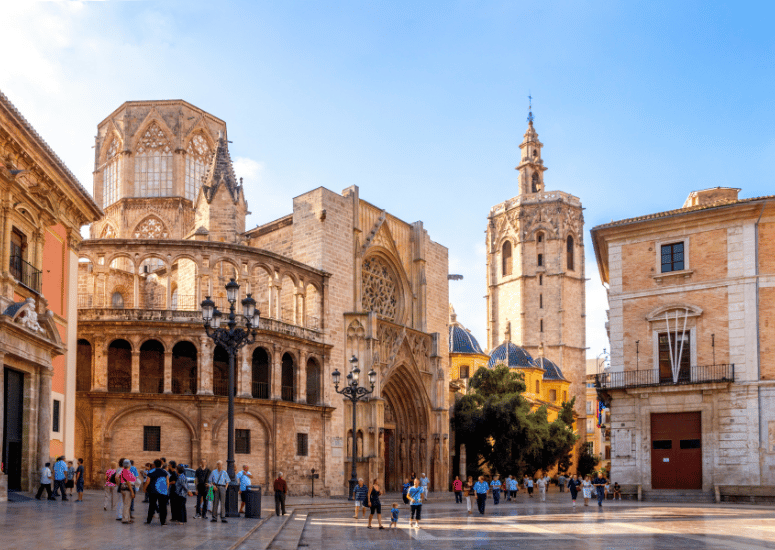GUIDE: How Filipinos with Spanish ancestry can get citizenship
Dreaming of living in Europe? If you're a Filipino with Spanish ancestry, you might be closer than you think to making that a reality—but hurry, this opportunity is only available until October 21.
Thanks to the Ley de Nietos, or "Grandchildren's Law," you could be eligible for Spanish citizenship, even if your Spanish roots trace back to your great-grandparents.
"This law, which has seen extensions, allows descendants of Spanish citizens who suffered exile or persecution during the Spanish Civil War and Franco dictatorship to acquire Spanish citizenship. This has broadened eligibility to include those with Spanish ancestry who might not have been able to claim citizenship under previous laws," immigration lawyer Rene Bueno of Counselors for Immigration and International Studies told PhilSTAR L!fe.
This law, enacted in October 2022, particularly benefits citizens from nations with strong historical ties to Spain, such as Equatorial Guinea, El Salvador, Guatemala, Mexico, Portugal, and the Philippines.
According to Bueno, citizenship application under this would require "substantial documentation to prove the genealogical link to the Spanish ancestor," which means presenting birth certificates of your parents, grandparents, or great-grandparents.
Under this law, eligible applicants are the following:
- Those born outside Spain whose parents or grandparents are Spanish;
- Those born outside Spain whose parents or grandparents, originally Spanish, have suffered exile for political, ideological, religious, or sexual orientation and identity reasons, or those who have lost or renounced their Spanish nationality;
- Grandchildren of Spanish women who lost their nationality because they married a foreigner before the enactment of Spain's 1978 Constitution;
- Those of legal age whose Spanish parents' nationality of origin was recognized by the right of option under the Seventh Additional Provision of Law 52/2007 of Dec. 26 or with the Eighth Additional Provision of Law 20/2022, the “Grandchildren’s Law."
What are the requirements?

When applying for citizenship under this premise, Bueno noted that one must present the following documents:
- Birth certificates
- Marriage certificates
- Police clearances
- Residency permits
- Others that may be required
Such requirements often require an apostille and sworn translations into Spanish, and applications are typically submitted to the Civil Registry in Spain.
"Acquiring Spanish citizenship involves a rigorous process requiring a wide range of documents. The process can be lengthy," Bueno told L!fe.
According to Alastair Johnson, founder of Moving to Spain consultancy—a platform that gives expert advice on immigration law, taxation, and finances, among others—this application has no qualification time or waiting period, which means you can submit your application as soon as you have the required documents.
He also reminded interested applicants to ensure they have the right format when applying.
"Understanding the correct documents, formats, certifications, and translations is where most applications fail," Johnson told L!fe.
How much does it cost?
Johnson said that the cost may vary. For starters, the official application fee is around €100 or P6,353, while the costs of preparing the necessary documents, including the translation, could go up to €1,000 or over P63,000.
If you're considering applying, Johnson recommends enlisting the help of an experienced Spanish immigration lawyer, particularly for preparing your documents. Johnson suggests budgeting around €3,000 (or over P190,000) for their assistance.
He noted that the duration of the process isn't fixed, as it hinges on various factors, but suggests planning at least 18 to 30 months to secure your new Spanish passport.
"The biggest impact on timings is mistakes with the application process. If your application or supporting documentation is not perfect, you may go all the way to the back of the queue again!" Johnson shared.
Aside from consulting an immigration lawyer, individuals can also seek assistance from the Consulate General of Spain in Manila. They can be contacted via email at con.manila@maec.es or by calling (02) 8818-3561 or (02) 8840-4623.
Other ways to apply for Spanish citizenship

If one doesn't have Spanish descent, they may still apply and be granted citizenship by Citizenship by Residency. However, unlike those who must legally reside in Spain for up to 10 years, Filipinos only need to reside continuously in the country for two years before applying for citizenship.
"This provision is typically found in Article 22 of the Spanish Civil Code (Código Civil), which outlines the requirements for obtaining Spanish nationality by residence," Bueno noted.
After the two-year residency, applicants must have:
- Good civic conduct: This involves having no criminal record in Spain or their country of origin.
- Sufficient integration into Spanish society: This is usually demonstrated by passing two exams administered by the Cervantes Institute, which are the DELE A2, a basic Spanish language proficiency test, and the CCSE (Conocimientos Constitucionales y Socioculturales de España), a test of knowledge about Spanish culture, history, and the Constitution.
- Submit a completed application in Spain
- Pay the application fee of around €100
- Receive approval and swear the oath (Jura) in the civil registry. Johnson said these appointments can take a long time to book.
Note that Filipinos applying for Spanish citizenship are not required to renounce their Philippine citizenship, per the draft treaty between the Philippines and Spain, as supported by the Department of Justice chief Jesus Crispin Remulla.
Why this is an opportunity you shouldn't miss

Applying for a Schengen visa for European countries comes with a painstaking process, and it's more challenging if you're applying for citizenship. Now that Filipinos have this perk, such as proving Spanish ancestry and the reduced residency period, it's too good of an opportunity to pass.
Johnson, who is a Spanish Permanent Resident himself, shared that their immigration lawyer partners have observed that Filipino applicants generally experience a smoother application process.
"They believe there are two reasons for this: Some civil registries are more used to dealing with Filipino applicants and process things a bit more smoothly (especially in places like Madrid, Barcelona, and Valencia)," he said, adding, "Spanish civil servants are often familiar with Philippine documents like NSO/PSA birth certificates and apostilles, which helps."
Acquiring a Spanish passport offers a significant upgrade, as it's hailed as the third most powerful globally by the Henley Passport Index, granting visa-free access to 189 countries—a stark contrast to the Philippine passport's 65.
Beyond extensive travel, Spanish citizenship also provides access to a comprehensive, free healthcare system and the freedom to work and study across any European country without needing additional permits.


